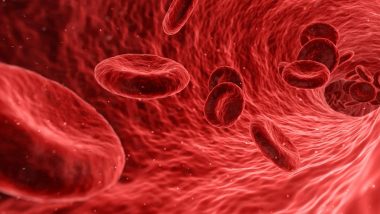New York, Aug 6: Treating moderately ill hospitalised Covid-19 patients with a full-dose blood thinner can reduce their need for organ support, such as mechanical ventilation, and improve their chances of leaving the hospital, showed a large clinical trial conducted worldwide.
However, the use of this treatment strategy for critically ill Covid-19 patients requiring intensive care did not result in the same outcomes, revealed the study published online in The New England Journal of Medicine. 'Treatment With Blood Thinners May Reduce Death in COVID-19 Patients', Says Study.
"These results make for a compelling example of how important it is to stratify patients with different disease severity in clinical trials. What might help one subgroup of patients might be of no benefit, or even harmful, in another," said Gary H Gibbons, Director at National Heart, Lung, and Blood Institute (NHLBI), part of the National Institutes of Health.
Some people who died from Covid-19, blood clots had formed throughout their bodies, even in their smallest blood vessels.
Antithrombotics, which include blood thinners or anticoagulants, help prevent clot formation in certain diseases.
But, doctors did not know which antithrombotic drug, what dose, and at what point during the course of Covid-19, antithrombotics might be effective.
To understand, the team included 1,074 critically ill and 2,219 moderately ill patients, to study the effects of using a full, or therapeutic dose, of the blood thinner heparin versus a low, or prophylactic dose, of heparin in moderately and critically ill patients hospitalised with Covid-19.
Among moderately ill patients, the likelihood of full-dose heparin to reduce the need for organ support compared to those who received low-dose heparin was 99 per cent.
A small number of patients experienced major bleeding, though this happened infrequently.
For critically ill patients, full-dose heparin also decreased the number of major thrombotic events, but it did not reduce the need for organ support or increase their chances of leaving the hospital early after receiving treatment.
"The formal conclusions from these studies suggest that initiating therapeutic anticoagulation is beneficial for moderately ill patients and once patients develop severe Covid-19, it may be too late for anticoagulation with heparin to alter the consequences of this disease," said Judith Hochman, from the New York University.
(The above story first appeared on LatestLY on Aug 06, 2021 12:52 PM IST. For more news and updates on politics, world, sports, entertainment and lifestyle, log on to our website latestly.com).













 Quickly
Quickly




















